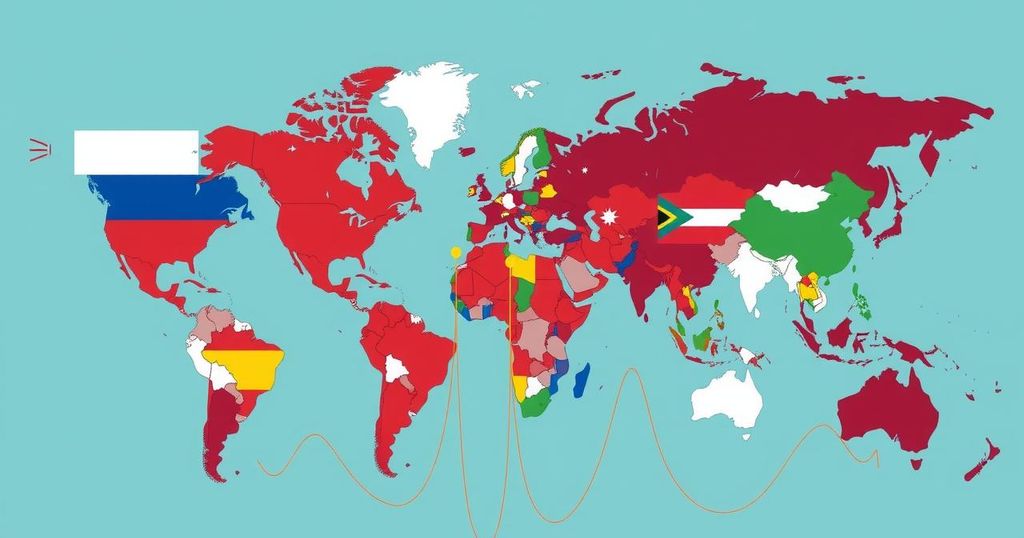2024: A Turbulent Year for Global Elections and Democracy

In 2024, elections across 70 countries resulted in widespread voter backlash against incumbents. Economic hardships and social unrest fueled the political landscape, leading to victories for populists and the far-right in several regions. Allegations of foreign interference and increased protests emphasized the challenges facing democracy globally, as established political systems struggled to maintain public trust.
In a striking year for global democracy, 2024 witnessed significant electoral upheaval across 70 countries hosting elections, impacting half of the world’s population. Many incumbent leaders faced voter backlash, as citizens expressed their discontent with issues such as economic instability and the aftermath of the pandemic. Key changes occurred in several nations, demonstrating a trend of declining support for long-standing leadership. Instances of civil unrest and electoral irregularities further complicated the democratic landscape, leading to a complex mixture of triumphs for populist movements and challenges for conventional governance. Amid rising discontent, allegations of foreign interference and misinformation campaigns also highlighted vulnerabilities in electoral integrity, leaving nations grappling with the efficacy and perception of democracy.
The global electoral scenario in 2024 emerged against a backdrop of growing dissatisfaction with established governments. Contributing factors included the economic disruptions caused by the COVID-19 pandemic, inflation stemming from geopolitical conflicts, and a general yearning for political accountability. Numerous nations experienced a surge in political tensions, mass protests, and governmental challenges, painting a tumultuous picture of democratic processes worldwide. As voters increasingly sought alternatives to incumbents, the rise of populist and far-right parties became evident in various regions, further complicating the global political landscape.
The electoral upheavals of 2024 illustrated a paramount shift in global politics, characterized by an evident rejection of incumbents and the worrisome rise of populist movements. This tumultuous year reflected widespread voter dissatisfaction stemming from economic and social challenges, leading to significant changes across continents. As allegations of electoral interference and civil strife emerged, the fragility of democracy was illuminated, suggesting a need for renewed focus on safeguarding democratic integrity as we progress into 2025.
Original Source: www.seattletimes.com






